IMYITOZO / EXERCISES
Mwemerewe gukoresha iyi myitozo igihe icyo ari cyose muyikeneye /
Feel free to download and use these exercises
Kuganira kuri jenda /
Introduction to gender
Gutangiza ikiganiro kuri jenda: Ni iki kigutera ishema?
Birashoboka ko hari bamwe mu bahugurwa batazi cyangwa batemera imibiri yabo kandi ariyo idufasha kumenya no gukoresha ububasha bwacu. Kugira ngo twumve ibi bidusaba kutita k’uko twiyumva mu buryo bw’ibitekerezo ahubwo tukibona mu buryo bw’umubiri, amarangamutima hamwe n’umwuka. Muri uyu mukoro abahugurwa bitekerezaho ubundi bagashushanya ibice by’imibiri yabo.
Kanda ku mwitozo Gutangiza ikiganiro kuri jenda
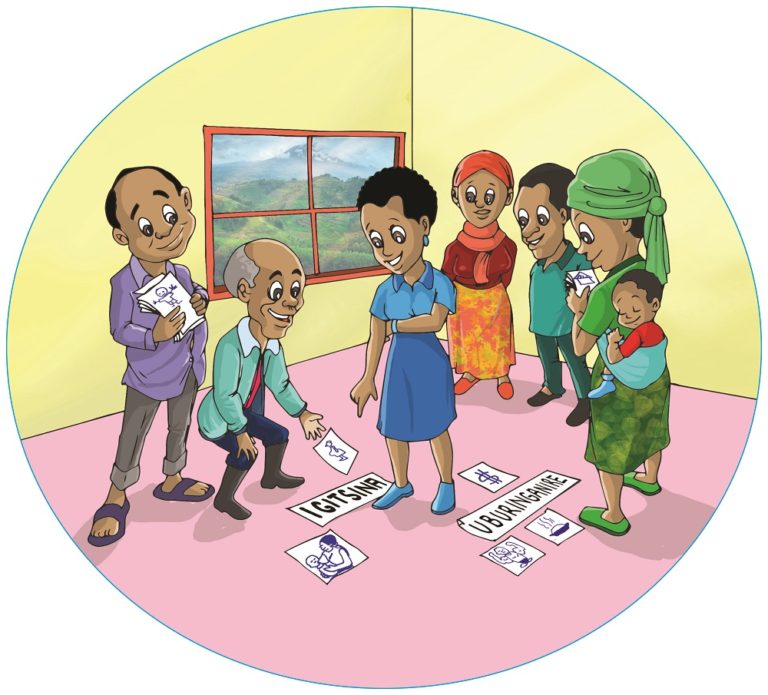
Introducing gender: what makes you proud?
The meaning of the words gender and sex are often not well understood. Exploring what makes you happy to be a man or a woman is a positive way of understanding the difference between gender and sex. In the end you will find that there are many positive things that both men and women can do.
To the exercise Introducing gender
Ni iki kiranga umugabo, Niki kiranga umugore?
Iki kiganiro kirafasha kumenya itandukaniro riri hagati y’umugabo n’umugore ugendeye ku buryo baremwe n’ibyashyizweho n’umuryanga mugari. Ese nibyo koko ko abagabo baba bafite imbaraga, abagore bakaba bakora neza imirimo yo mu rugo? Ushushanyije igishushanyo cy’umuntuukagereranya gradual and absolute diiferences, abahugurwa babona ko itandukaniro ry’ibitsina ritagomba gutuma habaho ubusumbane.
Kanda ku mwitozo Ibiranga umugabo, ibiranga umugore
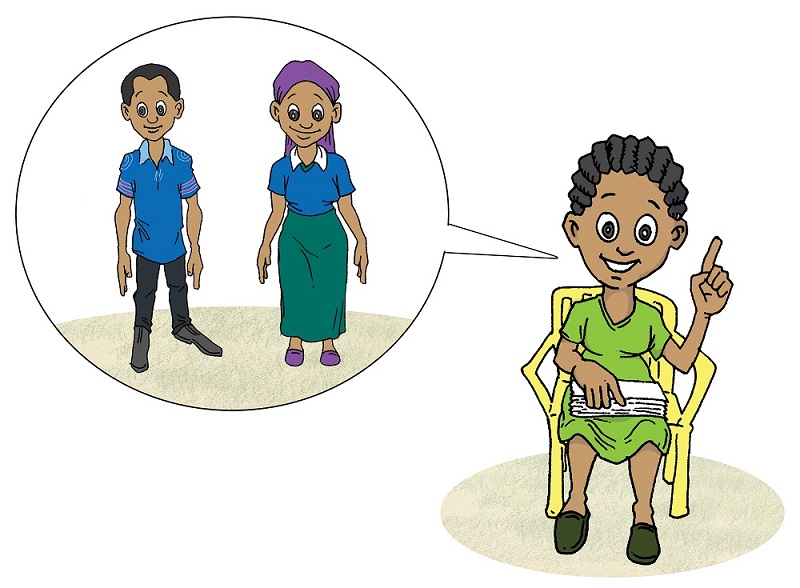
What defines a man, what defines a woman?
This session helps to explore both the physical and social differences between men and women. Is it always true that men are stronger, or that women are better at housework? By drawing the human body and comparing notes on gradual and absolute differences, participants learn that many differences between the sexes shouldn’t affect social equality.
To the exercise What typifies a men, what typifies a woman
Imyumvire ku bijyanye n’imyitwarire
Uyu mwitozo ugambiriye gufasha abahugurwa kumva ko imyitwarire ikunze guhabwa abagabo n’abagore ari imyumvire abantu bishyizemo ntaho bihuriye n’ubushobozi cyangwa ubumenyi bwabo. Imirimo yakorwa n’abagabo ishobora gukorwa n’abagore nkuko iyakorwa n’abagore ishobora gukorwa n’abagabo.
Kanda ku mwitozo Imyumvire ku myitwarire y’abagabo n’abagore
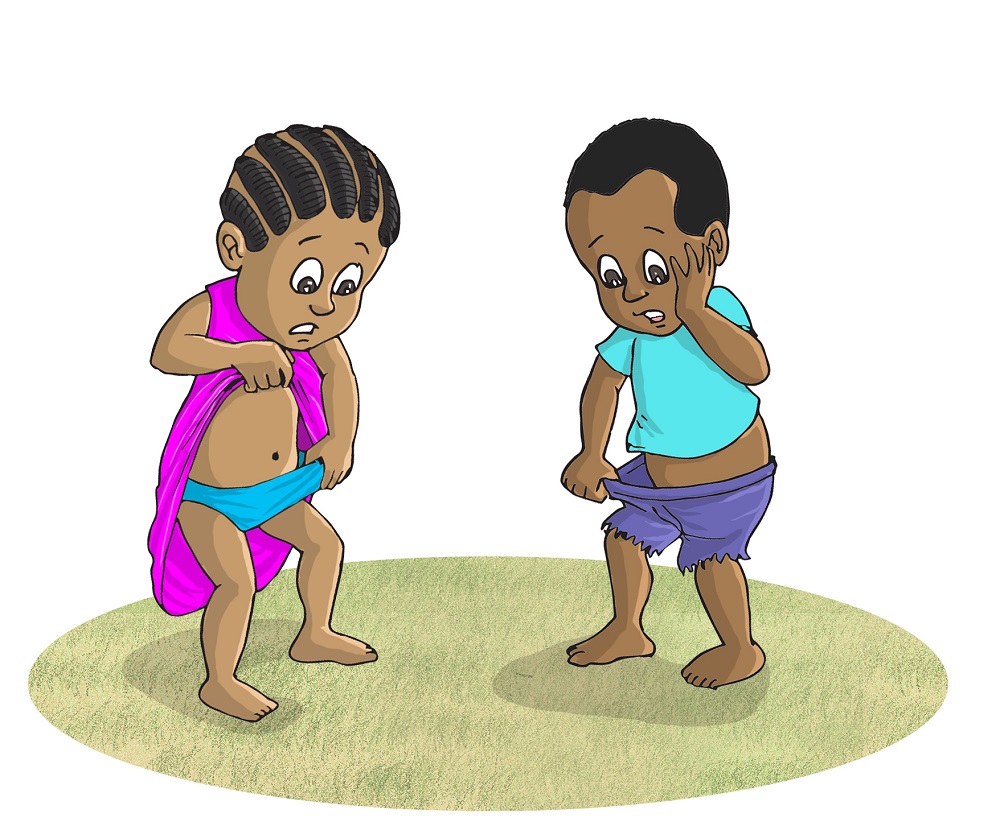
Gender stereotypes
This exercise is intended to help participants understand that many attributes given to men and women are gender stereotypes and have nothing to do with capability or skill. Activities done by men can also be done by women and vice versa.
To the exercise Gender stereotypes
Icyo umuryango mugari witeze ku muntu bitewe no kuba ari igitsina gabo cyangwa igitsina gore
Kuva bakivuka abakobwa n’abahungu barerwa bitandukanye. Abakobwa bigishwa kwitwara nk’umugore uboneye naho abahungu bakigishwa kwitwara nk’abagabo. Imirimo imwe ihabwa abakobwa indi igahabwa abahungu. Ibi bishobora gutuma habaho ivangura rishingiye ku gitsina bikabangamira ubushobozi, imirimo n’inshingano by’umwana. Ubutumwa nyamukuru bw’uyu mwitozo n’uko ibyo aribintu twigishijwe kandi bishobora guhinduka kugirango hirindwe ivangura rishingiye ku gitsina.
Kanda ku mwitozo Uko dufata umuntu bitewe n’igitsina cye (niba ari igitsina gabo cyangwa gore)
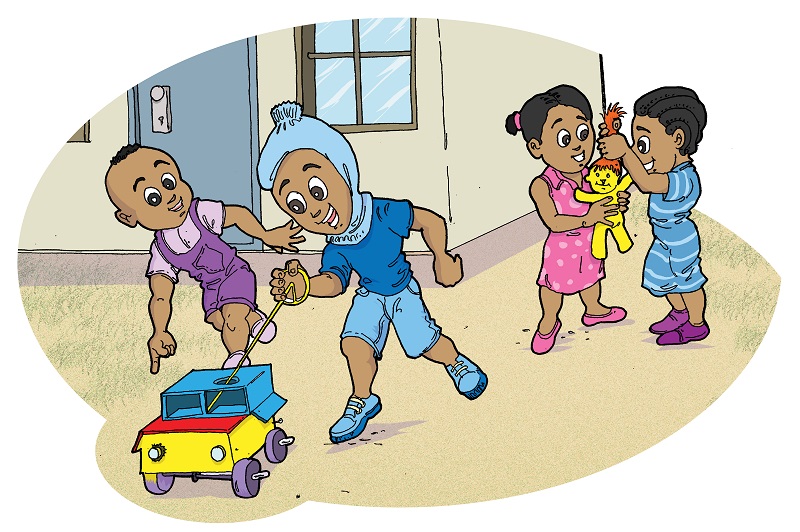
Gender socialisation
From birth, we socialise girls and boys differently. Girls are taught to behave like ideal women and boys are taught to act like men. Certain tasks are assigned to girls, whilst others are given to boys. This can lead to gender discrimination surrounding a child’s abilities, activities and responsibilities. The main message of this exercise is that gender socialisation is learned behaviour and it can be changed or unlearned to avoid gender discrimination.
To the exercise Socialisation
Abakobwa n’abahungu: Ibyo bakora n’ibyo batagomba gukora
Kuva bakivuka, abakobwa bigishwa kwitwara nk’umugore uboneye, naho abahungu bakigishwa kwitwara nk’abagabo. Imirimo imwe ihabwa abakobwa mu gihe indi mirimo ihabwa abahungu. Ubutumwa bw’uko abahungu cyangwa abakobwa bagomba kwitwara buva nanone ku mashuri, ku nsengero cyangwa mu itangaza makuru. Ibyo abantu bitega ko aribyo byiza ku mukobwa cyangwa ku muhungu bishobora guhinduka nyuma y’igihe. Muri uyu mwitozo abahugurwa basubiza amaso inyuma bakareba uko umuryango mugari ushimangira imyumvire runaka kuri jenda n’uko iyo myumvire igira ingaruka ku buzima bwabo iyo bari gukura. Bibafasha nanone gutekereza ku buryo bumva bashaka kurera abana babo.
Kanda ku mwitozo Abakobwa n’abahungu, Ibyo bagomba gukora n’ibyo batagomba gukora
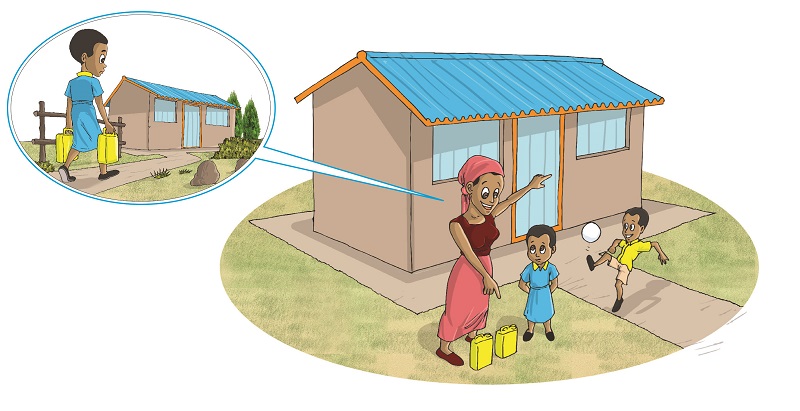
Boys and girls: dos and dont’s
From birth, girls are taught to behave like the ideal woman while boys are taught to act like men. Certain tasks are assigned to girls, whilst others are given to boys. Messages about how boys or girls should behave also come from schools, churches and the media. The expectation of what is right for boys and what is right for girls can change over time. In this exercise, participants reflect on how society reinforces gender norms and how these norms affected their own lives growing up. It also encourages them to think about what they want for their children.
To the exercise Boys and girls, Do’s and Dont’s
Umugabo uboneye n’umugore uboneye
Mu muryango mugari wacu abantu bitega ibintu binyuranye ku mugore no ku mugabo. Iyo myumvire rero ituma abantu bajya mu byerekezo binyuranye kugira ngo bumve ubushobozi bwabo.Uyu mwitozo uzashafasha kumvisha abaturage ukuntu abantu bishyiramo ibiranga umugabo cyangwa umugore uboneye kandi ko bishobora kutugeza ku ivangura.
Kanda ku mwitozo Umugabo uboneye n’umugore uboneye
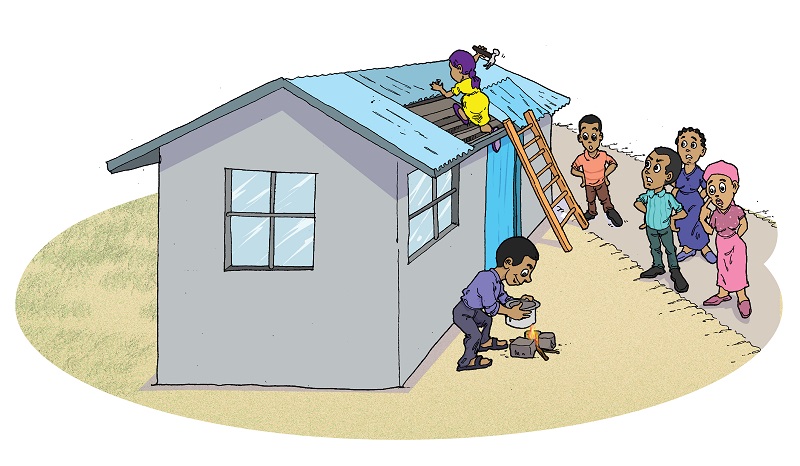
Ideal men and ideal women
Our society has different expectations for men and women. These expectations push people in certain directions, possibly at the expense of fulfilling their individual potential. This exercise will help the community to understand how gender ideals are constructed and how they can lead to discrimination.
To the exercise Ideal man and ideal woman
Igabana ry’imirimo yo mu rugo /
Role division in households
Imirimo yo mu rugo
Abagabo benshi batekerezako bakora cyane kurusha abagore babo. Uyu mwitozo uratwereka ko hari itandukaniro rinini hagati y’imirimo abagore bakora n’iyo abagabo bakora. Imirimo abagore bakora igomba guhabwa agaciro kandi bagomba gufashwa. Urugo rwiza kandi rwishimye ni urufashanya mu mirimo yo mu rugo.
Kanda ku mwitozo Imirimo yo mu rugo
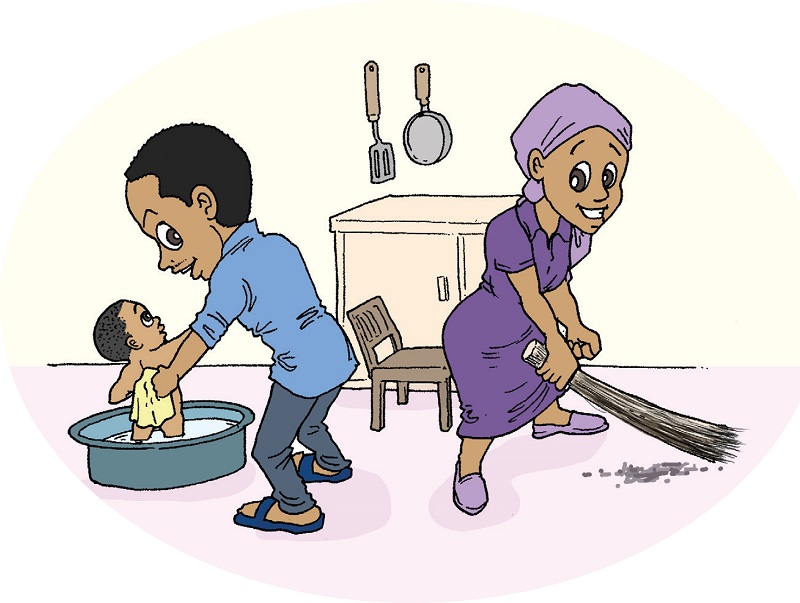
Household activities
Most husbands think they work harder than their wives. This exercise shows that there is a very big difference in the type of work men and women do. Women’s work in the household needs to be valued and shared. A household with shared division of labour is happier and healthier.
To the exercise Household activities
Kugira uburenganzira bwo gukoresha no gucunga imitungo mu rugo
Abagore bakora cyane bita ku rugo, ariko bafite ububasha buke ku mitungo irurimo. Uyu mwitozo urafasha abahugurwa kumva ko urugo rurushaho gutera imbere iyo umugore n’umugabo bafite ububasha bungana mukugenga ibikoresho byo murugo.
Kanda ku mwitozo Kugira uburenganzira bwo gukoresha no gucunga umutungo w’urugo
Imbonerahamwe igaragaza ufite uburenganzira bwo gukoresha no gucunga umutungo w’urugo
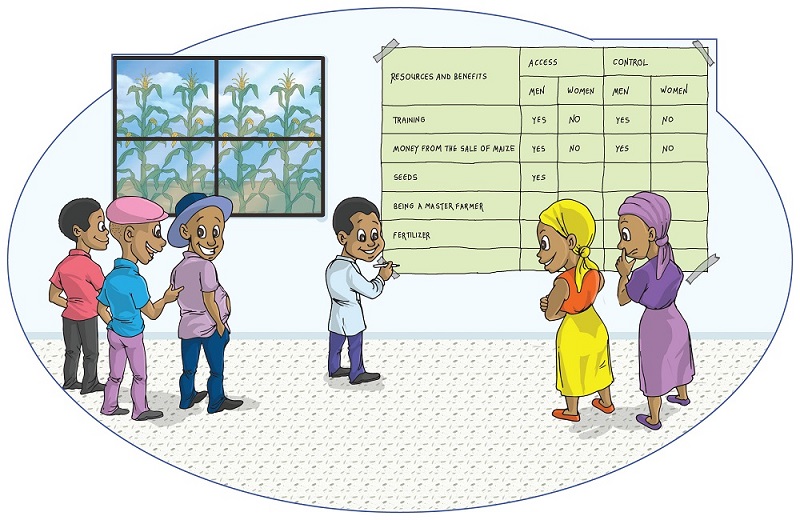
Access and control of resources in the home
Women contribute a lot to maintaining a household, yet they often have very little control over household items. This exercise helps participants to understand that a household develops better when husbands and wives have joint control over managing household items.
To the exercise Access and control profile exercise
Inzu y’ indoto zanjye (mu magambo cyangwa mu mashusho)
Uyu mwitozo uzafasha abahugurwa kureba ku buzima bwabo kuri ubu(ibyo bakunda n’ibyo badakunda) kandi bagatekereza ku hazaza bashaka kugeraho( inzu y’indoto zabo). Bifasha kandi abagabo n’abagore kuganira ku buzima bw’urugo rwabo maze bagashyira hamwe imbaraga mugutegura imbere heza bifuza.
Kanda ku mwitozo Inzu y’indoto zanjye
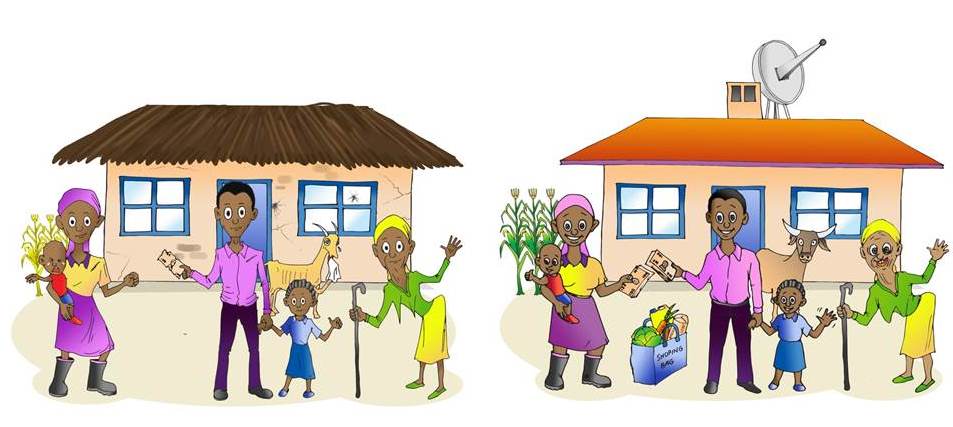
House of my dreams
Kugira indoto ni ikintu kimwe ariko kugera kuri izo ndoto ni ikindi.Uyu mwitozo uzafasha abahugurwa kugira igena migambi riri SMART mu gihe kizaza. Uyu mwitozo uzabafasha kwiga no kureba inzitizi n’amahirwe no kureba aho bageze mu gihe cy’umwaka.
Soma umwitozo Kugera ku ndoto zawe
Kugera ku ndoto zawe
Kugira indoto ni ikintu kimwe ariko kugera kuri izo ndoto ni ikindi.Uyu mwitozo uzafasha abahugurwa kugira igena migambi riri SMART mu gihe kizaza. Uyu mwitozo uzabafasha kwiga no kureba inzitizi n’amahirwe no kureba aho bageze mu gihe cy’umwaka.
Kanda ku mwitozo Kugera ku ndoto zawe
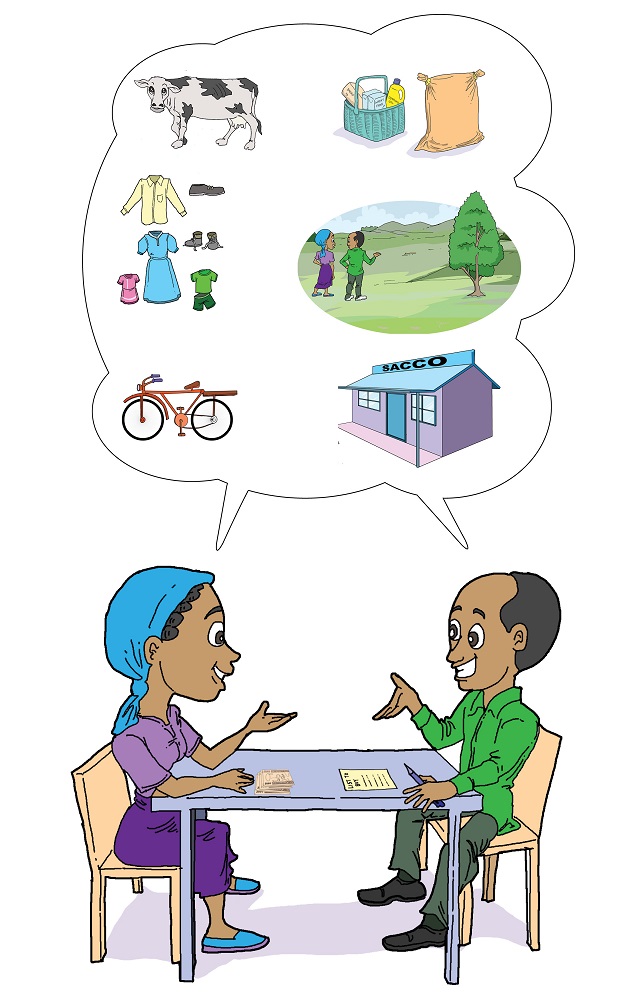
Realising your dreams
Dreaming one thing, but achieving those dreams is another. This exercise will help participants to build a SMART action plan towards their futures. It will assist them in analysing challenges and opportunities, and in tracking their progress over the coming year.
To the exercise Realising your dreams
Kurema impinduka mu bantu /
Creating an environment for change
Itsinda ritekanye
Uyu mwitozo ufasha kurema icyizere no kwiyizera kw’abahugurwa. Uyu mwitozo unafasha kandi kurema umwuka w’umutekano n’icyubahiro mu itsinda ry’abahugurwa kandi ukanafasha abahugurwa kwizerana.
Kanda ku mwitozo Itsinda ritekanye
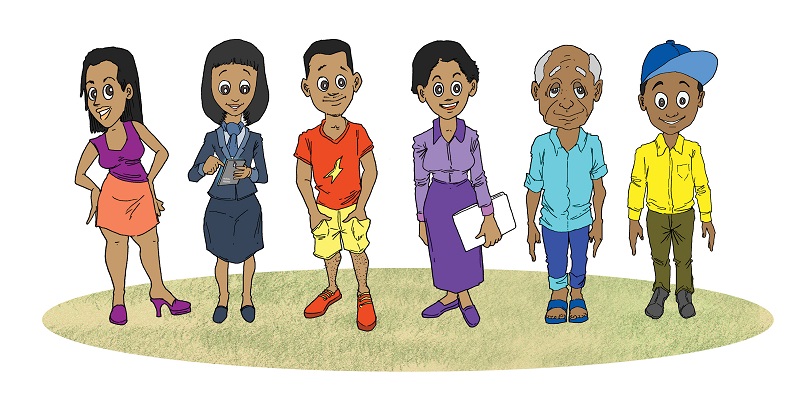
Safe group
This exercise helps to create trust and confidence between participants. It helps to foster a safe, respectful atmosphere within a group, and helps individuals to trust other group members.
To the exercise Safe group
Igishushanyo cy’umubiri
Birashoboka ko hari bamwe mu bahugurwa batazi cyangwa batemera imibiri yabo kandi ariyo idufasha kumenya no gukoresha ububasha bwacu. Kugira ngo twumve ibi bidusaba kutita k’uko twiyumva mu buryo bw’ibitekerezo ahubwo tukibona mu buryo bw’umubiri, amarangamutima hamwe n’umwuka. Muri uyu mukoro abahugurwa bitekerezaho ubundi bagashushanya ibice by’imibiri yabo.
Kanda ku mwitozo Igishushanyo cy’umubiri
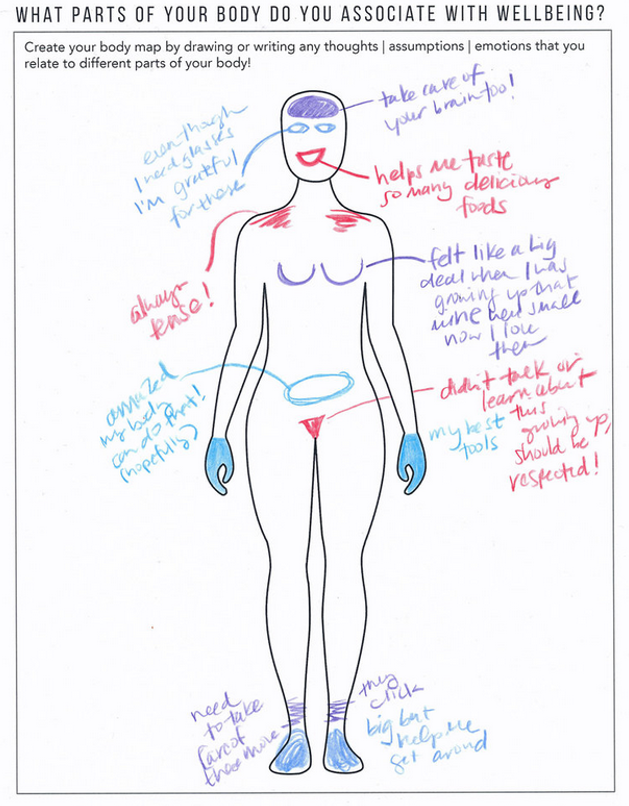
Body maps
It may be very rare for some participants to acknowledge their bodies or to know their bodies intimately. Yet our bodies are our vehicles for resisting or expressing power. We need to look beyond our mental image of ourselves and see our physical, emotional and spiritual selves. In this exercise participants do a visualization and draw their own body.
To the exercise Body maps exercise
Ububasha (igice cya mbere)
Twese dufite ububasha. Twese dufite ubushobozi bwo gukora mu buryo runaka. Igitsina gore n’igitsina gabo bashobora guhitamo gukoresha ububasha neza cyangwa nabi. Kuganirira hamwe kubyo igitsina gore cyangwa igitsina gabo bombi batakereza ku bubasha bishobora kubafasha kumva ko bafite ububasha bungana kandi bikanabafasha kubukoresha neza.
Kanda ku mwitozo Ububasha (Iribuririro)
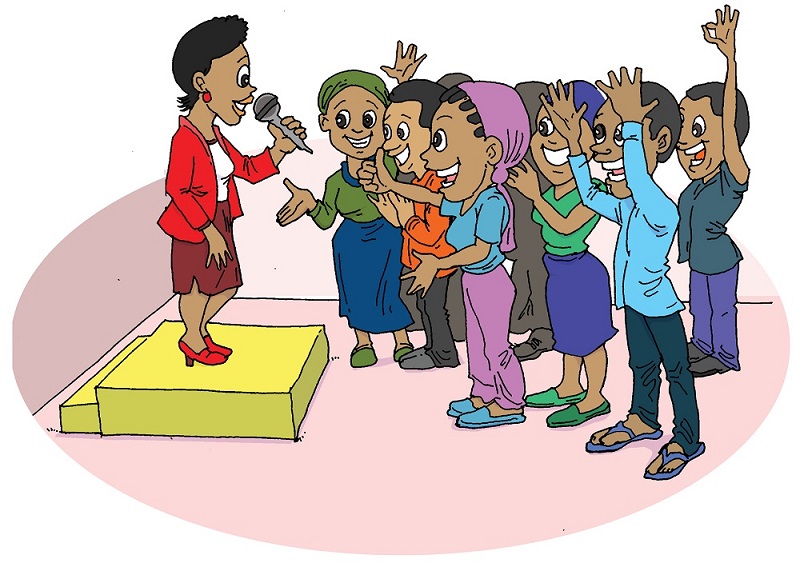
Power (introduction)
We all have power. We all have the capacity to do or act in certain ways. Men as well as women can choose to use power positively or negatively. Discussing what women and men think about power together can help them to understand that they have equal power and encourage them to use it correctly.
To the exercise Power (introduction)
Ururabo rw’ububasha
Isano ry’ububasha bugenda buhinduka nyuma y’igihe runaka. Abantu akenshi ntabwo bakunze kwita ku isano ry’ububasha ntibabone uko bashobora gukora igikorwa runaka nk’abantu ku giti cyabo cyangwa nk’itsinda. Kwiga ku moko menshi y’ububasha( ububasha bwo, ububasha kuri, ububasha hamwe n’ububasha nifitemo) n’ukuntu ashobora gufasha abantu n’ibigo kumenya ububasha busanzweho no kumenya uburyo bwo kubuhindura.
Kanda ku mwitozo Ururabo rw’ububasha
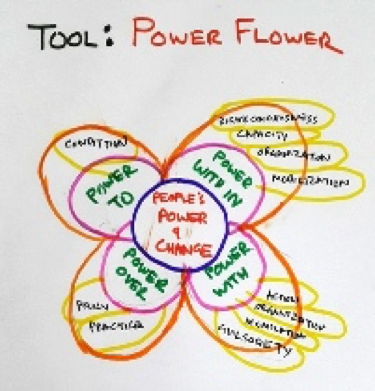
The Power Flower
Power relations shift over time. People often take power relations for granted and do not see how they can take action as individuals or groups. Analysing the different forms of power (power to, over, with and within) can help individuals and organisations to become more aware of existing power dynamics and investigate ways of influencing them.
The the exercise The power flower
Ihohoterwa rishingiye ku gitsina /
Gender-based violence
Ihohoterwa rishingiye ku gitsina ni iki?
Ihohotera rifitanye isano n’ububasha. . Iyo umuntu afite ububasha, ashobora ku bukoresha nabi cyangwa agahohotera. Muri rusange,birazwiko abagabo bafite ububasha ku bagore, ari nayo mpamvu itera amakimbirane hagati y’abashakanye ariyo abyara ihohoterwa ry’abagore. Muri uyu mwitozo, abagabo bongera kureba ku moko ane y’ihohoterwa rishingiye ku gitsina hamwe n’imyitwarire y’abagabo ku bagore.
Kanda ku mwitozo Ihohoterwa rishingiye ku gitsina ni iki
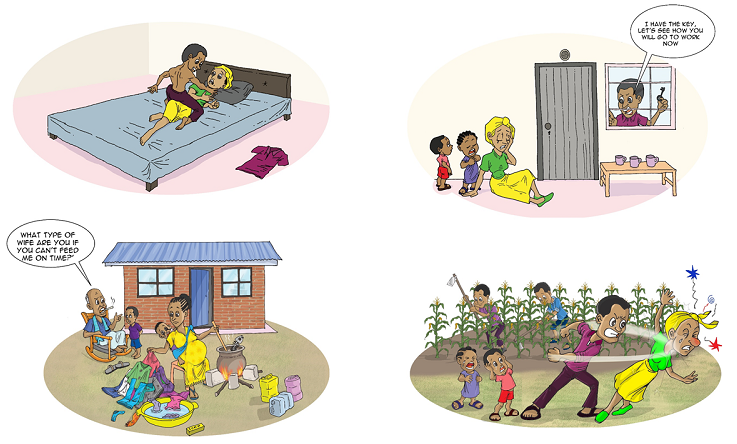
What is Gender Based Violence?
Violence is related to power. When one person has power, they can abuse this power and become violent. In general, men are assumed to have power over women, which is one of the reasons that conflicts between partners often turn violent against women. In this exercise, men reflect on the four types of gender-based violence and on male behaviour towards women.
To the exercise What is gender based violence
Uko wahagarika ihohoterwa rishingiye ku gitsina
Muri uyu mwitozo, abahugurwa bumva ko umuntu uwo ari we wese yakorerwa ihohoterwa rishingiye ku gitsina kandi ko ihohoterwa rishingiye ku gitsina ari ikibazo kigomba kubonerwa umuti. Muri aya mahugurwa kandi abahugurwa bakora igenabikorwa bazakurikiza mu kurwanya ihohoterwa rishingiye ku gitsina bakanaba indashyikirwa mu kuzana impinduka.
Kanda ku mwitozo Uko wahagarika ihohoterwa rishingiye ku gitsina
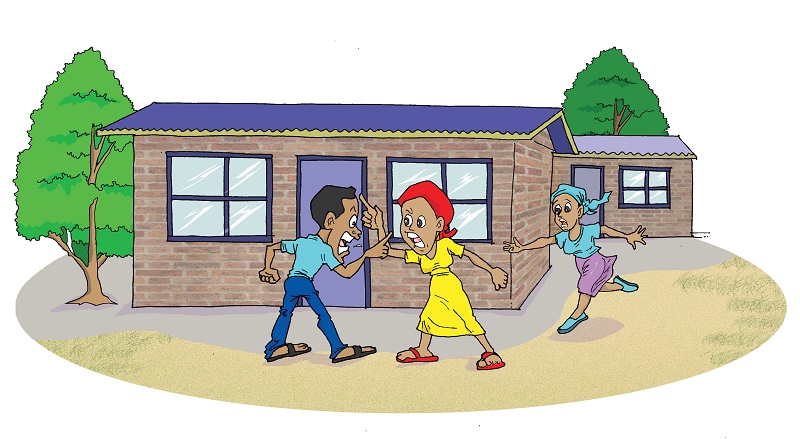
How to stop Gender-based Violence
Through this exercise, participants come to understand that anyone can be a victim of gender-based violence and that GBV is an issue that needs to be addressed. This session guides the group in developing a community-based plan to help prevent GBV, turning each member into a champion for change.
To the exercise How to stop the use of Gender based-violence
Imyumvire kubijyanye n’amategeko
Amategeko yo mu Rwanda ashyigikiye uburinganire bw’umugore n’ubw’umugabo.Ariko, abagabo bamwe bafata ayo mategeko nkarobanura kandi bahangayikishijwe n’uko politiki z’igihugu nshya zikuraho uruhare cyangwa umwanya w’umugabo mu muco. Ikiganiro cyiza n’ingingo kuri buri mpande zombi (abashyigikira amategeko n’abatayashyigikira) bishobora guhindura imitekerereze ya bamwe kubirebana n’ayo mategeko.
Kanda ku mwitozo Imyumvire ku bijyanye n’amategeko
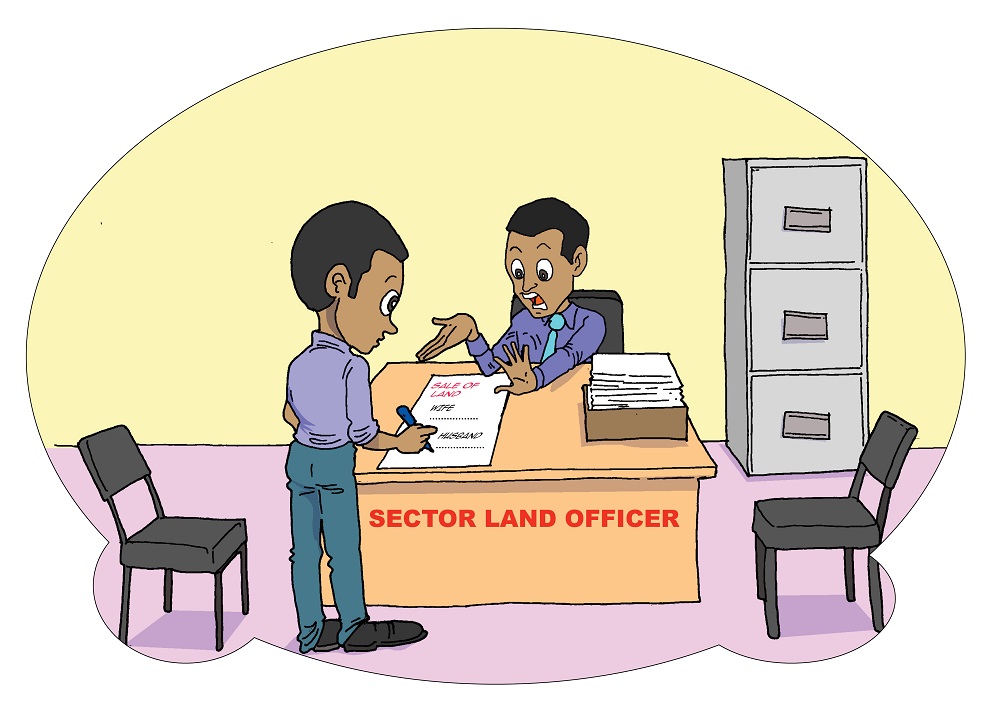
Legal perceptions and implications
Laws in Rwanda favour the equal treatment of men and women. However, some men interpret these laws as discriminatory and worry that new policies will threaten traditional roles for men. A good debate with arguments from both sides can help to change opinions about the law.
To the exercise Legal Perceptions and Implications
Rutabikangwa na Nyirakamana: Inkuru ku ihohoterwa rikorerwa mu ngo
Ihohoterwa rishingiye ku gitsina riba mu miryango. Abarikorerwa baterwa ipfunywe ryo kubibwira abandi, inshuti n’abaturanyi nabo ntibabibone cyangwa nabo bagatinya kubivugaho. Uyu mwitozo uganira ku nkuru mpimbano ifasha abahugurwa kumenya ingaruka z’ihohoterwa rishingiye ku gitsina ku barikorerwa, abana n’abarikora. Abahugurwa bashishikarizwa kuganira ku ngaruka z’ihohoterwa rishingiye ku gitsina aho batuye.
Kanda ku mwitozo Umwitozo ku nkuru ya Rutabikangwa na Nyirakamana
Ibiganiro mu matsinda ku nkuru ya Rutabikangwa na Nyirakamana
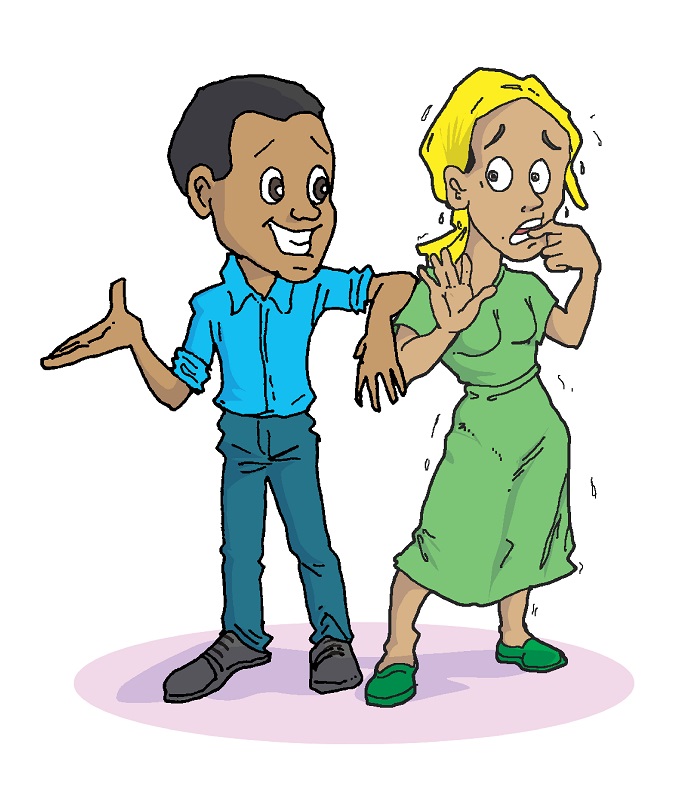
A story, Rutabikangwa and Nyirakamana
Gender-based violence often happens within families. Many survivors of gender-based violence are too ashamed to talk about it, and many friends and neighbours either don’t notice or don’t feel it’s appropriate to ask. This exercise looks at an imaginary story which helps participants understand the consequences of gender-based violence for survivors, children and perpetrators. Participants are also encouraged to consider the consequences of gender-based violence within their own communities.
To the exercise Rutabikangwa and Nyirakamana the ex
